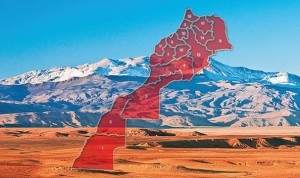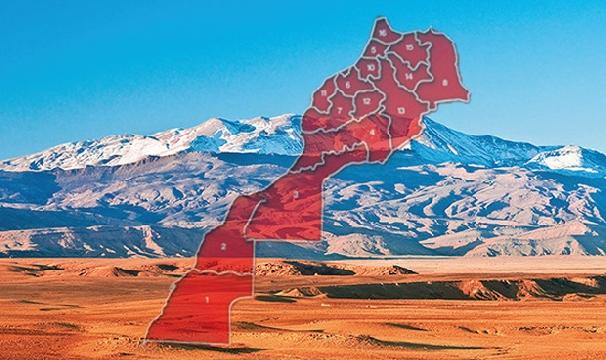Emma Borden

Where does Morocco stand today, five years after the Arab uprisings? Nizar Baraka — President of the Economic, Social and Environmental Council of Morocco and the chair of the Economic Working Group of the U.S.-Morocco Strategic Dialogue — provided a snapshot at a Center for Middle East Policy discussion on February 3.
While Tunisia, Libya, and Egypt are more frequently referenced in discussions about the 2011 Arab uprisings and their aftermath, Baraka stressed that the political and social changes in Morocco should not be overlooked. He emphasized the importance of the July 2011 constitution, which puts Morocco’s citizens at the “heart of all we do.” The new constitution reinforces regional representative councils, gives more power to the parliament, and strengthens the voice of civil society.
Another crucial component of the 2011 reforms— which was the focus of Baraka’s talk at Brookings — is the Moroccan government’s ongoing process of “advanced regionalization,” which began in earnest in 2015 with Morocco’s first direct local and municipal elections. The new constitution made way for a “real revolution in institutions” by devolving power from the national government to regional and municipal authorities. Baraka emphasized that civil society representatives from the private sector, trade unions, NGOs, and other groups inform this process. He said that the regionalization process seeks to address three challenges:
Bringing decision-making closer to the citizens: Regionalization will promote local participation in governance, Baraka said. When democratic reforms were undertaken in the 1990s, he explained, the state lacked credibility. People did not know who was making decisions. Now he believes that the people themselves are central to the process.
Reducing disparities between regions: Economic activity, job opportunities, and services delivery vary greatly between regions. As Baraka pointed out, four of Morocco’s 12 provinces account for approximately 50 percent of GDP, and about 50 percent of Morocco’s doctors work in two of the 12 provinces.
Creating public policies that respond to citizens’ needs: Currently, government departments are siloed, hindering effectiveness. Further regionalization can enhance coherence and effectiveness of government services.
The Southern Provinces (a.k.a the Western Sahara)
Baraka spoke extensively about the Southern Provinces, the term the Moroccan government uses to refer to the disputed Western Sahara, as a pilot for development across the country. While negotiations on the 2007 autonomy proposal have stalled, regionalization should provide much-needed socio-economic development in the Southern Provinces, independent of the United Nations process.
The new constitution made way for a “real revolution in institutions” by devolving power from the national government to regional and municipal authorities.
In the Southern Provinces, the government is a main economic actor and largest job provider. Baraka acknowledged that there are currently no real incentives for the local private sector to invest there, but added Moroccan companies are becoming interested as a result of the government’s plans for regional development. As the Council made clear in its October 2013 report on the New Development Model for the Southern Provinces, the region’s rent-based economy is being replaced by a competitive economy boosted by private investment.
Economic diversification will encourage other African countries to import from the Southern Provinces, further improving the economic situation there and strengthening ties between Morocco and its southern neighbors, a key goal of the Moroccan central government. Specialized schools for management and medicine are slated to open, along with infrastructure investment for transportation, electrification, and digital connectivity, that will benefit not just this region but also several Sub-Saharan African countries.
Morocco is committed to several other projects devoted to African development:
- Food security: As a phosphate-rich country, Morocco built a fertilizer plant dedicated to sell to the African market.
- Energy (especially renewable): Morocco built a solar plant in Benin and has pledged to provide technical assistance and more there.
- Including countries in the value-added chain:For example, many students from Sub-Saharan Africa have come to study in Morocco, and many on Moroccan-sponsored scholarships.
He also spoke about the successful export of Morocco’s imam training program, which fights radicalism, to the Sahel.
On the global scale, Morocco can help foster relations between the United States, the Gulf, and Arab countries on the one hand and Morocco’s African neighbors on the other. Regionalization will also help reduce vulnerability to global pressures. By improving relations with countries to the south, the impact of Europe’s weakening economies will be reduced. The U.S.-Morocco economic relationship is also growing.
In addition to government resources devoted to the advanced regionalization process as a whole, the Southern Provinces are receiving additional funding. In ten years, Baraka said, “we can double the region’s GDP and reduce the level of unemployment by 50 percent.”
Does Morocco mean it?
Baraka is convinced that his country has the will and the capacities to implement an “original vision to create competitive development centers in every region.” Take the emigration problem, for example; in the 1990s, many Moroccans (especially from the north) left for Europe, primarily for economic opportunities. To stem the flow and create jobs, the Tangier port was built up and the city is now home to the highly-productive Renault car plant.
[R]egionalization can help make democracy more present in people’s lives.
Even so, many are skeptical about whether development will bring about democratization; and some question the sincerity of Morocco’s dedication to democratization in the first place. Baraka said that those who do not believe Morocco is truly committed to democratization are simply not looking hard enough, adding that the improvements are in the details. For example, now all laws go directly from the council of governments to parliament, rather than going through the king before reaching parliament.
In Baraka’s view, democracy is important to Morocco first and foremost because it is the only way to truly involve the people, and regionalization can help make democracy more present in people’s lives. After all, local elections see higher turnout than state legislative ones. He advocated the development of more political parties to counter the trend of populism. In his own Istiqlal Party, he admitted that the leadership’s emphasis on populism doesn’t quite align with the people’s vision of the party.
In a particularly upbeat moment during his talk, Baraka explained that, in response to strong public opinion on the issue, parliament member pensions will no longer receive state contribution. We have public opinion and we take it into account—“that’s democracy!” he said.







